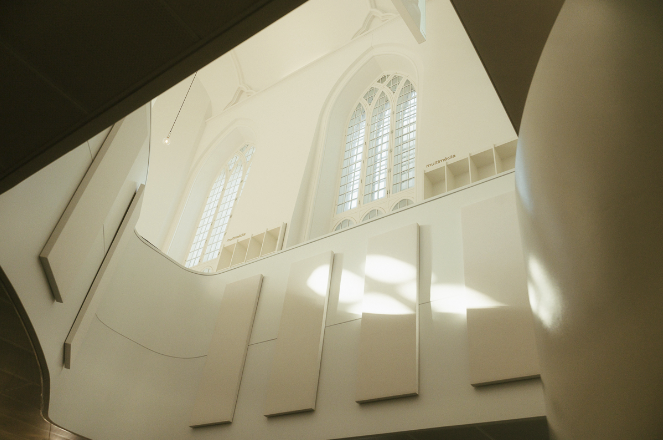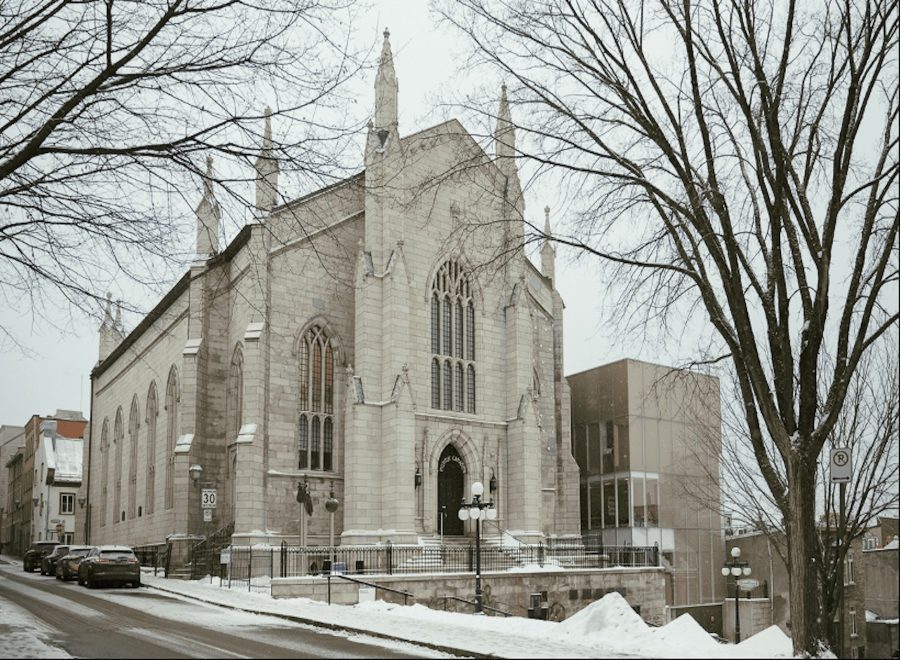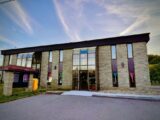From the neo-Gothic spires and arched windows that decorate the Maison de la littérature in Québec City, you’d be forgiven for thinking it’s a church rather than a public library.
“Tourists are generally attracted by the heritage aspect of the old church and discover once they are inside that it is the Maison de la littérature,” Jean-Philippe Marcoux-Fortier, the coordinator for Quebec City centre’s public libraries, wrote over email in French.
You may unsubscribe from any of our newsletters at any time.
But this church-turned-library is not merely a tourist novelty. A public space in Canada’s only UNESCO City of Literature, it welcomes immigrants and refugees in an environment where over two-thirds of minorities in Québec report systemic racism. Québec premier Francois Legault recently demanded Prime Minister Justin Trudeau close the door to refugees. Meanwhile, the Maison de la littérature’s upcoming events celebrate Afro-Canadian, Haitian and Caribbean poetry, and Latin-American and Québécois literary confluences.
“For me, the Maison de la littérature distinguishes itself by its dynamism and its sense of community,” dancer and Québec local Alice Vermandele wrote over Instagram in French. “Along with being a welcoming place for the public, its varied programming and activities make it an essential place that helps the artistic and literary community of Québec and elsewhere to shine.”
More on Broadview:
- Forget condos, these churches will become affordable rental units
- Groundbreaking multifaith library coming to Montreal church
- Indigenous healing centre inside United Church could help people struggling with work and finances
Studies show how libraries build community wellbeing by provoking new perspectives. Libraries have an exquisitely mongrel and unaffiliated sacredness. Although places of worship and libraries offer environments for pondering metaphysical questions, libraries open their doors to communities across religious backgrounds.
In 2015, the Maison de la littérature opened to the public after renovation. But the building’s life began in 1848 as the Wesley Temple, a Methodist church catering primarily to the anglophone community. In 1944, it became the flagship library and lecture campus for the prestigious Institut Canadien du Québec, a 175 year-old francophone literary organization. This incarnation of the building closed in 1999, witnessing years of disuse before becoming a public library.

“Visitors and residents appreciate working in a space with an historic architectural style, luminous and sober at the same time,” Marcoux-Fortier said. The building’s spiritual heritage lingers as light dances through vaulted windows, carrying a feeling of consecration. Inside, the focal point is the circular work table at the centre, from which white bookshelves radiate. Everything is painted white, reflecting the light. There is a dramatic interplay between intricate sculptural details and stark, almost dimensionless ivory.
Since the Quiet Revolution of the 1960s, when citizens resisted the reach of the Catholic Church into public life, many Québec churches have been neglected. They are being increasingly reintegrated into the social fabric as libraries, community kitchens and even cabarets. In Québec City, the Bibliothèque Claire-Martin and Bibliothèque Monique-Corriveau were also once churches.
But the Maison de la littérature has been transformed twice, closing its doors for 16 years before becoming the library the community knows today. These repurposed buildings frame conversations between past and present. Inside, time collapses in book pages and the building’s stones. Located in winding cobbled lanes, among innumerable churches spanning the spectrum of neglect, this library might not be a site of worship. Nonetheless, the Maison de la littérature stands as a sacred space.
***
Sana Khan is a writer and editor based in Rio de Janeiro.













